FRIENDSHIP — Add rising lobster trap prices to the growing list of difficulties facing Maine’s lobster industry.
Some trap makers had already increased their prices in the spring to cover the rising cost of steel and labor. Then last month, the U.S. levied a 25 percent tariff on raw imported steel, driving up the cost of the Canadian, Mexican and Chinese steel used to make the plastic-coated wire mesh used in traps. American steel producers quickly raised their prices to match.
As a result, the biggest U.S. supplier of the mesh used to make Maine lobster traps, Riverdale Mills Corp. of Massachusetts, has seen the price of its raw steel double in 2018, said CEO James Knott Jr. But Riverdale is absorbing that price hit so far, by slowing the rate at which it is retiring construction debt and dipping into energy savings.
“We are who we are because of the lobster industry, so we’re doing everything we can to make sure this won’t hurt the industry,” Knott said. “We can take the hit for a while, but we need the tariffs lifted as soon as possible. It’s very damaging to us. These tariffs mean we can’t invest in our business, our employees, our equipment or technology. There is real trickle-down.”
Knott hopes the Trump administration eliminates the tariffs before he must decide between trimming jobs at Riverdale, which employs 185 people, or raising the price of its lobster trap wire, called Aquamesh. Raising the price would undoubtedly force trap makers to pass that cost along to lobster fishermen, including many of Maine’s 4,800 commercial lobstermen.
The state’s two largest trap makers, Friendship Trap Co. and Brooks Trap Mill, buy wire mesh from Riverdale. The companies said Riverdale has not passed on the cost of the steel tariff increases to them.
Still, they saw Aquamesh prices go up in 2017 and 2018 to offset the rising cost of steel, zinc and labor. That was before the tariff was implemented.

Friendship Trap Co. makes about 50,000 traps a year at facilities in Friendship and Columbia Falls, producing about one trap an hour for each of the 50 to 70 employees it has on site bending wire, pouring concrete runners and making or tying off heads.
Two other large global companies make the plastic-coated wire mesh used in traps, one in China and one in Italy. Friendship buys some of its mesh from the Italian one, and Brooks buys mesh from both. Ironically, the foreign-made mesh is not subject to a tariff – it is a finished steel import, not the raw steel that’s on the tariff list.
Riverdale pays the 25 percent tariff to import raw steel from Canada, or buys from U.S. mills that have raised their steel prices to match.
‘TARIFFS BRING HUGE UNCERTAINTY’
Even if Riverdale does raise its prices, Friendship can still buy mesh from its primary supplier, Cavatorta of Italy, without paying the import tariff, said owner Chris Anderson.
That makes a big difference for Friendship, which specializes in building rugged offshore traps that use lots of heavier-gauge steel. The company makes about 50,000 traps a year at facilities in Friendship and Columbia Falls, producing about one trap an hour for each of the 50 to 70 employees it has on site bending wire, pouring concrete runners and making or tying off heads.
“We’ve been lucky so far, but we know that can change,” Anderson said. “Tariffs bring huge uncertainty to the market. You’ve got tariffs on raw steel imports on almost everyone. That drives up domestic prices, too. Then there’s China’s lobster tariffs, which could drive down lobster prices here, which means lobstermen can’t buy new traps. If the steel tariffs don’t hit us, the lobster tariffs will.”

Friendship Trap Co.’s owner and president, Chris Anderson, says his company can buy mesh from its primary supplier, Cavatorta of Italy, without paying the import tariff.
Lobstermen are also facing the prospect of higher bait prices next year as regulators consider restrictions on the herring catch. They also are losing ground on sales to Europe because of a new Canadian trade pact with the European Union that makes Canadian lobster cheaper.
Riverdale is one of hundreds of U.S. companies seeking a federal exemption from the steel tariffs, but so far, Knott has gotten no reply.
Maine’s trap makers are hoping Riverdale will get that exemption and that the lobster industry can remain unscathed by the steel tariffs.
“There’s a lot that goes into making a trap – the netting, oak runners – but yeah, it’s a lot of steel,” said Mark Brooks, the president of Brooks Trap Mill, which sells about 100,000 traps a year out of its retail stores in Thomaston, Portland, West Bath, Jonesboro and Wakefield, Rhode Island. “We are warning our customers that with these tariffs it’s inevitable they will see the cost of traps go up.”
Knott did not want to talk about how much Riverdale may have to raise the cost of trap mesh, but if it does, Brooks expects it would increase the price of his traps by about 20 percent.
Meanwhile, the manufacturer of the fasteners used to connect the wire mesh pieces to form the trap has raised its prices to offset the steel and aluminum tariffs, Brooks said. For now, Brooks is absorbing the higher price of fasteners without passing it on to buyers of traps, which cost $60 to $150 each, depending on the size and the gauge of the steel.
CUTTING BACK ON TRAP PURCHASES
Like others who make their living off the lobster industry, trap makers know that anxious, cash-strapped lobstermen don’t buy new gear – they patch their old traps instead. They’ll replace the engine of an old boat instead of buying a new one. They’ll curb their bait use by adding new dead herring on top of old in the bait bag.
Many of the lobstermen fishing in Maine waters have been enjoying record high landings over the past five years and have had the cash flow available to replace 100 or 200 of their 800-trap gang of gear every year, according to trap makers. These fishermen can easily sit out a year or two until the tariffs are lifted and trap prices stabilize.
And despite the recent bonanza, last year’s dip in landings hit some fishermen particularly hard, restricting cash flow and leaving them slow to buy new traps even before the steel tariffs hit, Anderson said. Some fishermen who usually buy 100 to 200 traps from him in early spring cut their orders back or only bought enough traps to replace the ones lost to storms or passing trawlers.
Most lobstermen had already placed their trap orders and secured their prices by the time the steel tariff hit, said Kristan Porter, a Cutler lobsterman and the new president of the Maine Lobstermen’s Association. That gives federal trade officials four or five months to normalize trade relations before lobstermen like Porter start thinking about buying new traps.
In the past, Porter has always bought 100 new traps a year, but last winter, he said, he only felt comfortable replacing what he’d lost.
“Trap prices going up. That just adds to our pile of problems,” Porter said. “Between the bait shortage, and fuel prices, and talk of what we should do to protect right whales, a tariff on lobster traps would just be one more expense that will eventually end up on the fisherman. So much is up in the air, but one thing I know for sure: The fisherman ends up paying.”
Penelope Overton can be contacted at 791-6463 or at:
poverton@pressherald.com
Twitter: PLOvertonPPH
___________________________
CORRECTION: This story was updated at 6 p.m. on July 24, 2018, to correct the number of people employed by Riverdale Mills Corp.
Send questions/comments to the editors.


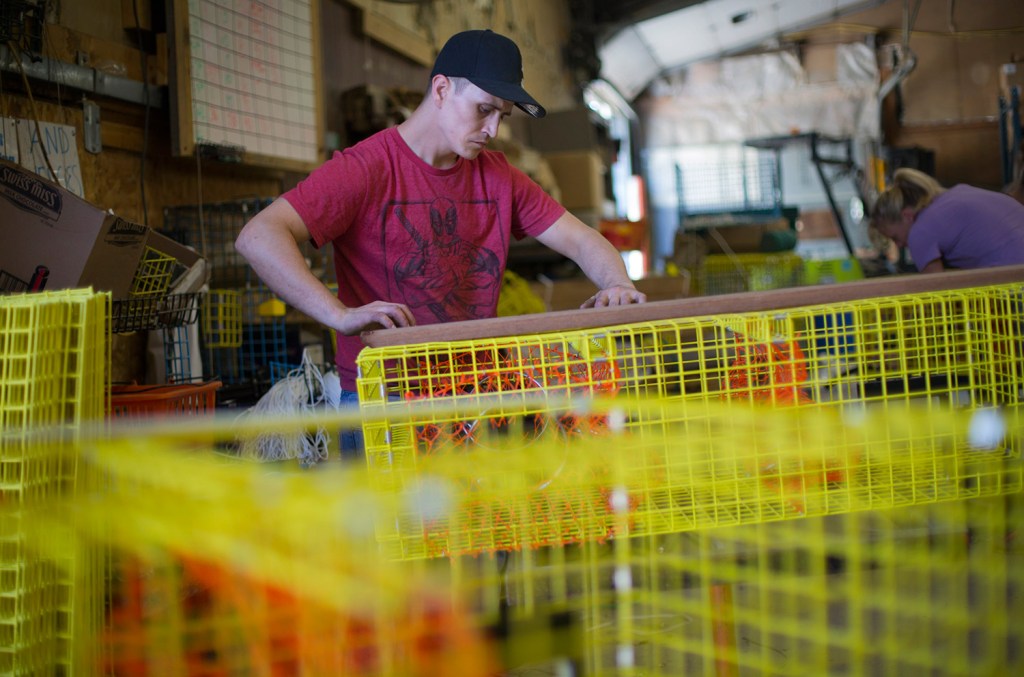
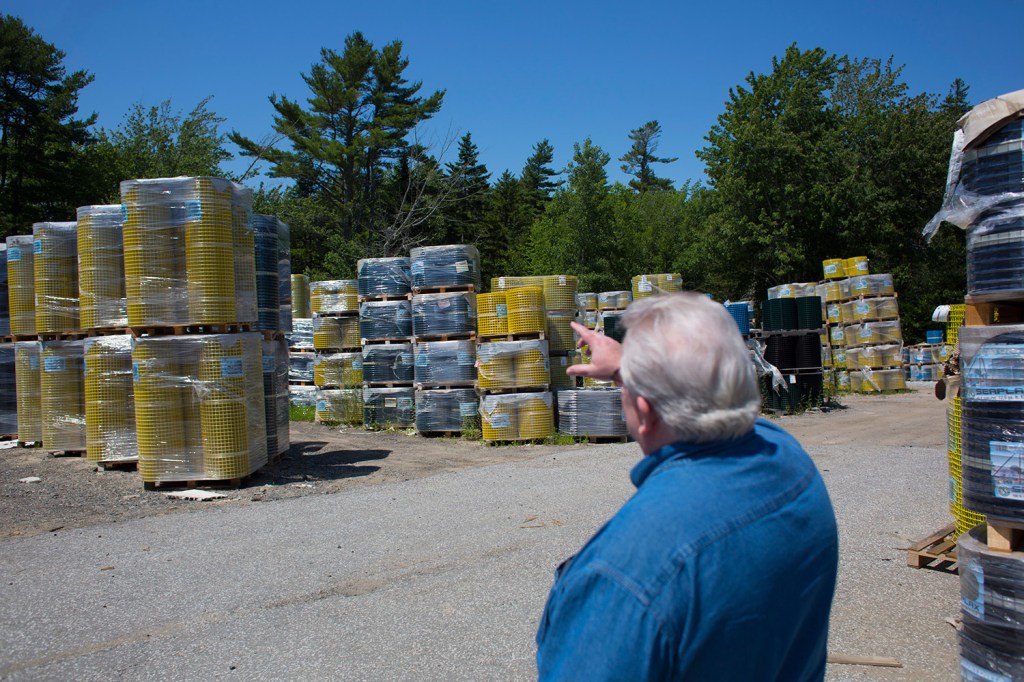
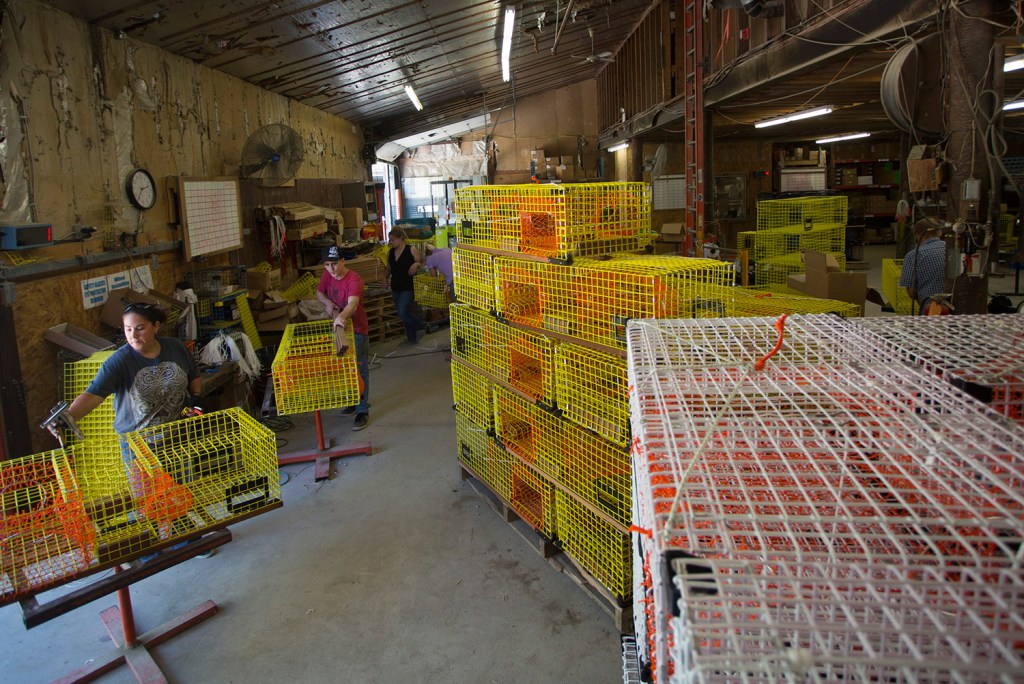
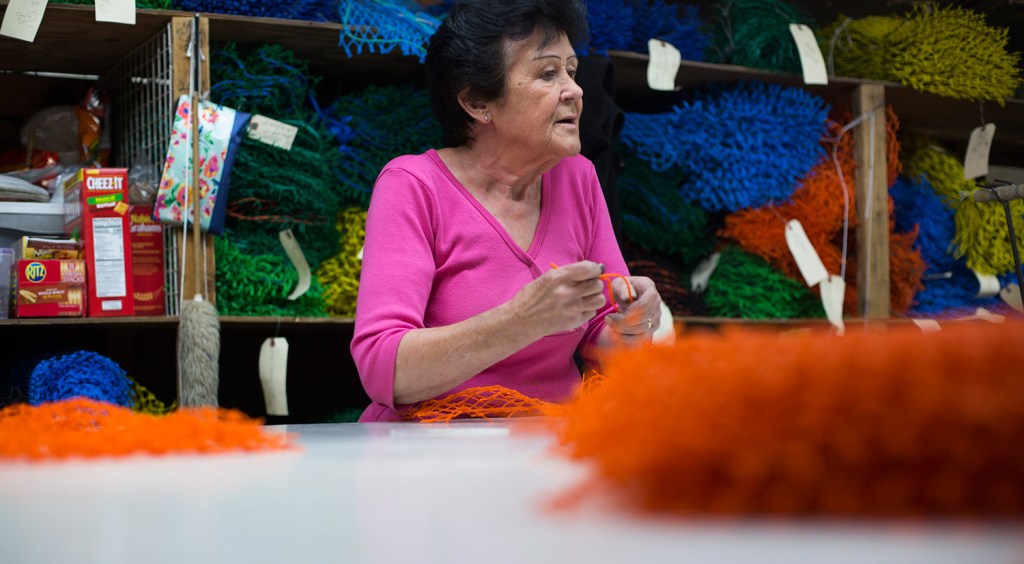
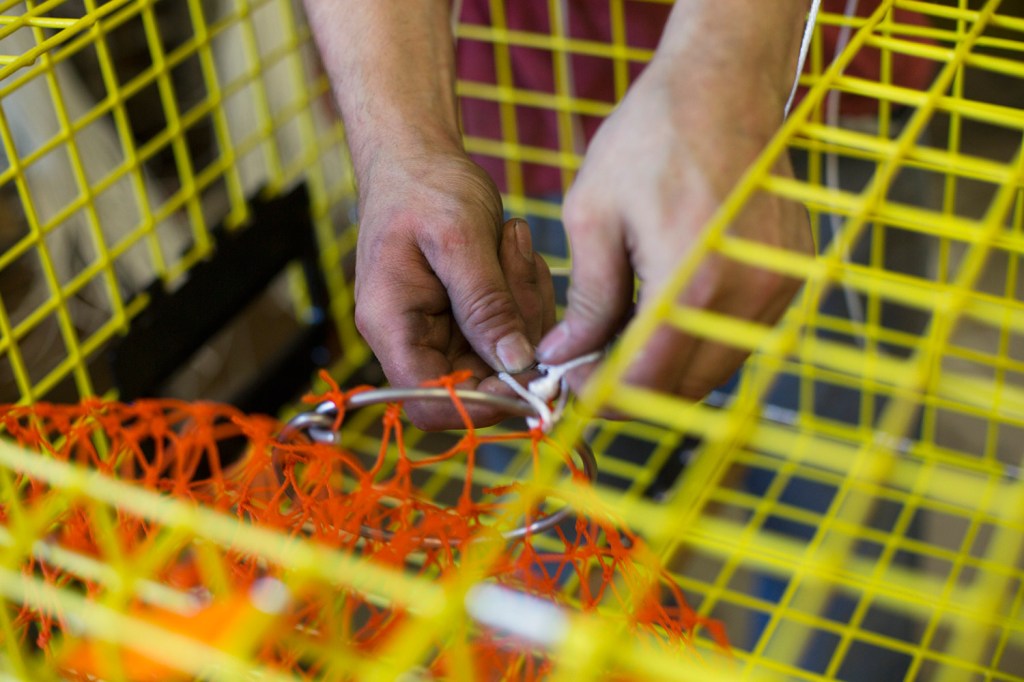
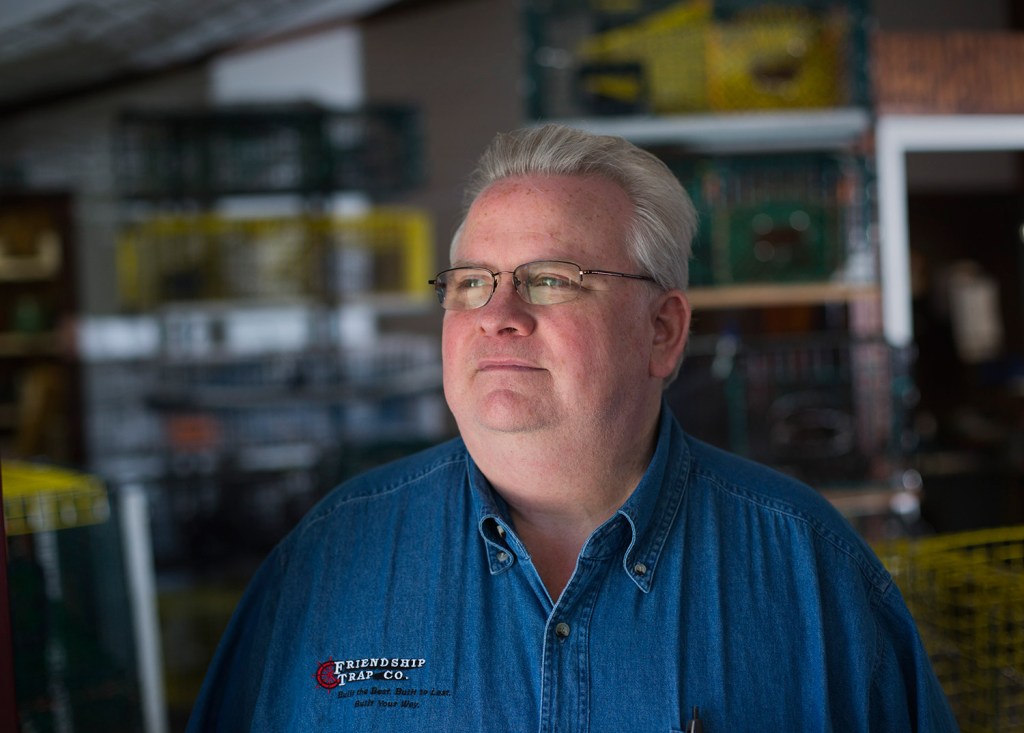
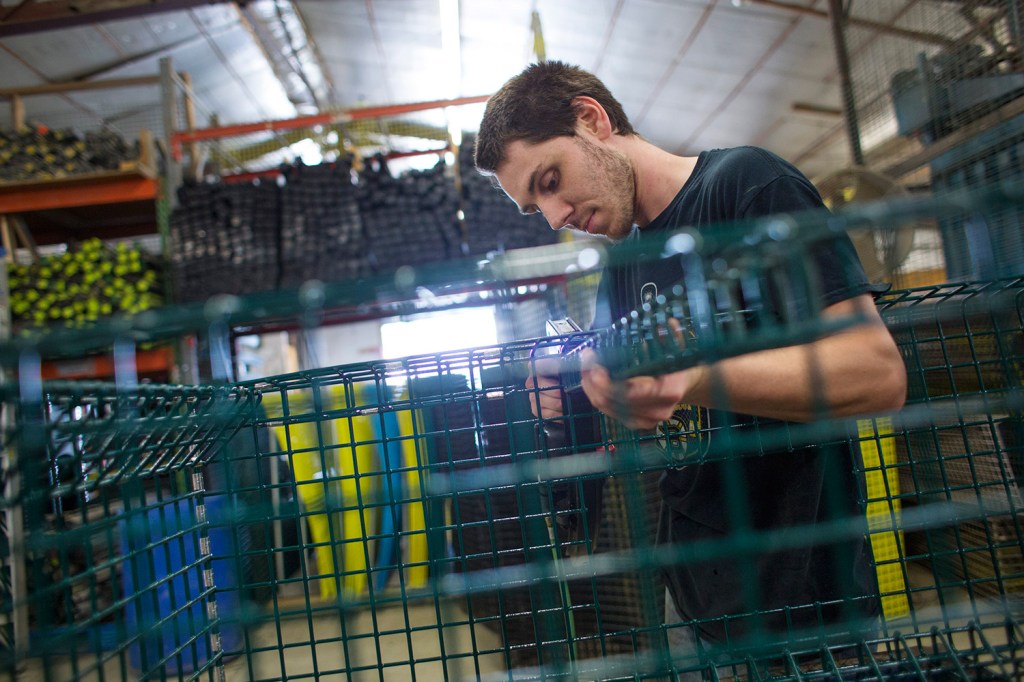
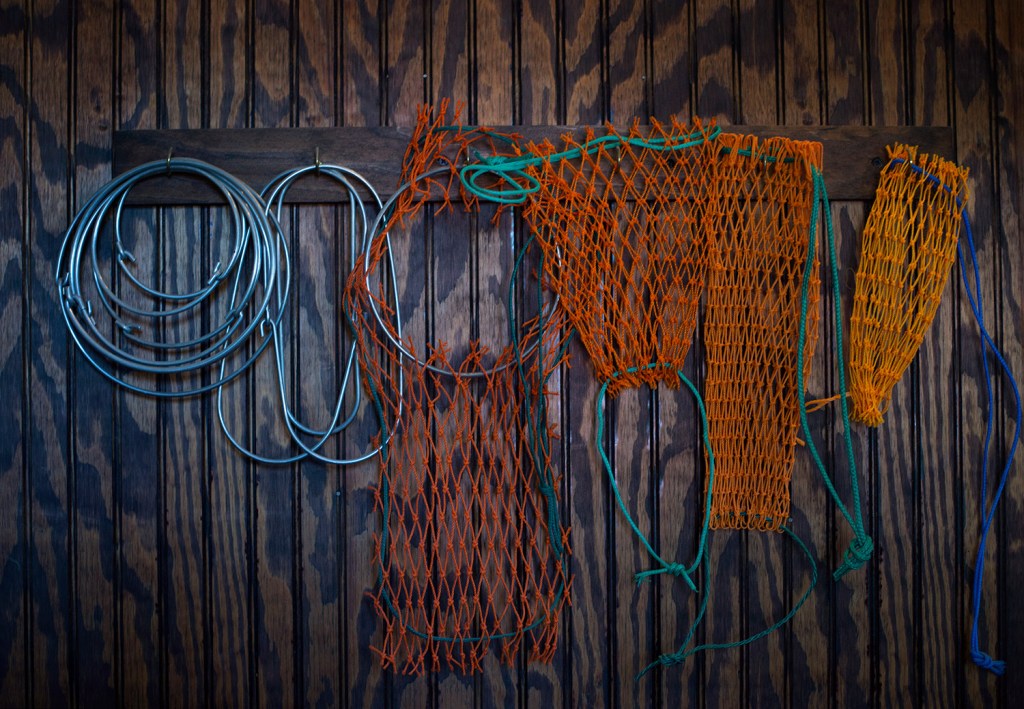
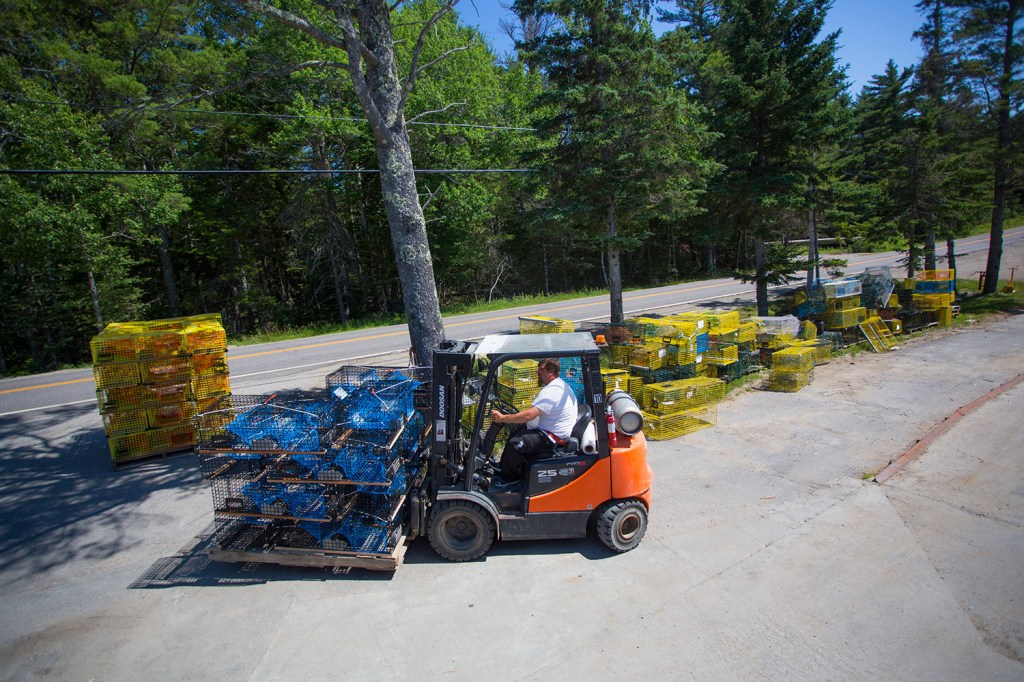

Success. Please wait for the page to reload. If the page does not reload within 5 seconds, please refresh the page.
Enter your email and password to access comments.
Hi, to comment on stories you must . This profile is in addition to your subscription and website login.
Already have a commenting profile? .
Invalid username/password.
Please check your email to confirm and complete your registration.
Only subscribers are eligible to post comments. Please subscribe or login first for digital access. Here’s why.
Use the form below to reset your password. When you've submitted your account email, we will send an email with a reset code.